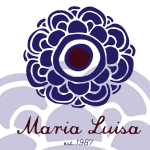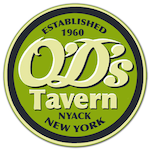by Susan Hellauer
Welcome to Sustainable Saturdays, a new Nyack News And Views series that focuses on conservation, sustainability, recycling and healthy living.
Nyack, May 7 — High-stakes democracy drama isn’t just on TV.

Photo: Lake DeForest, Rockland County.
Credit: Laurie Seeman.
Activists from more than 30 area civic and environmental groups formed the Rockland Water Coalition in 2007 to oppose a plan to build a desalination plant on the Hudson River. The grassroots movement, backed up by elected officials, took on a determined and well funded public relations effort by the multinational corporation that controls most of Rockland County’s water supply. In December 2015, the NYS Public Service Commission agreed with the activists and said the plant was no longer needed, directing Suez — the international water resource management company formerly known as United Water — to focus on conservation instead of desalination.
For their efforts, the Rockland Water Coalition was awarded a 2015 Environmental Champion Award from the U.S. Environmental Protection Agency.
Coalition leaders Laurie Seeman and Margie Turrin joined the Rockland Sierra Club’s Peggy Kurtz to tell the story of their nine-year crusade against desalination in a talk last week sponsored by the Sisters of St. Dominic in Blauvelt and the Rockland Sierra Club. All three speakers made it clear that this hard-won victory was a turning point for the whole community. “We can begin the sustainability journey by living within our resource limits and being creative in how we become truly water wise and drought resilient,” said Turrin.
Info Session Wed To Focus On Rockland’s Drinking Water Safety
The public is invited to a 6:30p Wed May 11 meeting at the Rockland County Legislature about drinking water regulations, including the frequency of testing and how results get reported. The session will be hosted by Rockland County Legislator Harriet Cornell, chairwoman of the legislature’s Environmental Committee.
The program will also discuss the public health impacts, if any, of trihalomethane, and recommendations for any changes. Cornell expects to include discussion of what testing is conducted for other chemicals or contaminants in the drinking water supply.
Participants will also include Dr. Daniel Miller, Water Supply Program Manager, and Samuel Rulli, P.E., Senior Public Health Engineer, Rockland County Department of Health; Christine Westerman, MPH, Regional Environmental Health Director, Metropolitan Area Regional Office, New York State Department of Health; and Dr. Steven Chillrud, Senior Research Scientist, Lamont-Doherty Earth Observatory, an Environmental Geochemist who conducts Public Health research.
The Rockland County Legislature is located at
11 New Hempstead Road in New City.
United Water had once predicted that Rockland would run out of water in 2015, recommending a desalination plant as the answer to the projected shortage. The coalition responded with a grassroots effort sounding the alarm that the desal plant would be “unsafe, unnecessary, and costly.” The group worked to publicize potential threats to water users and the ecosystem from the proposed plant, highlighting concerns about placing the facility’s water intake about three miles down stream from the Indian Point nuclear facility in Buchanan, NY.
Opposition to the desalination plant swelled as the Rockland Water Coalition’s campaign mounted. A fund raising effort allowed the coalition to hire national experts to study local supply and demand, which got the respect and attention of the New York’s Public Service Commission.
In 2014, the Rockland County Legislature created a Task Force on Water Resource Management, chaired by Legislator Harriet D. Cornell (D-West Nyack), to bring together county officials, environmentalists, citizens and Suez/United Water to find ways to meet future water needs. A recent New York State grant will help fund a comprehensive water conservation plan to implement new policies and best practices. Community outreach will be a significant part of this three-year program.
Turrin says that most of us take this precious resource for granted. With desalination off the table, community conservation must begin. “We treat water as a throwaway, and don’t understand its value.” She illustrated water-use patterns in the county, noting that over half our Rockland summer water use is outdoors. “This has to be an area of focus, with backyard water use in summer a prime target for policy changes,” Turrin said.
Seeman says that Rockland sends 14 billion gallons of water a year into the Hudson River from its two wastewater plants, citing a US Geological Survey study. Remedies like permeable pavement and rain gardens, along with creative landscape and hardscape solutions, can direct more rainwater into the groundwater well system rather than letting it all splash down overloaded storm drains and streets into our rivers. “We need to take this run off and make it ‘run on’,” Seeman said.
Suez has a new tiered rate structure proposal before the Public Service Commission that rewards those who conserve. This plan would recognize and reinforce the value of water, and includes rebates for homeowners who purchase water-saving devices through their conservation program. Single family residences are the heaviest per capita water users in the county (each person uses about 65 gallons a day). Experts say this program of rebates for switching to water-stingy appliances and fixtures, along with sink- and shower-water “behavior modification,” could produce significant savings.
The monthly meetings of the Rockland County Task Force on Water Resource Management are open to the public. The task force is looking for volunteers to join the committee.
Sustainable Saturdays is sponsored by Green Meadow Waldorf School, Maria Luisa Boutique, O’D’s Tavern and Strawtown Studio.












